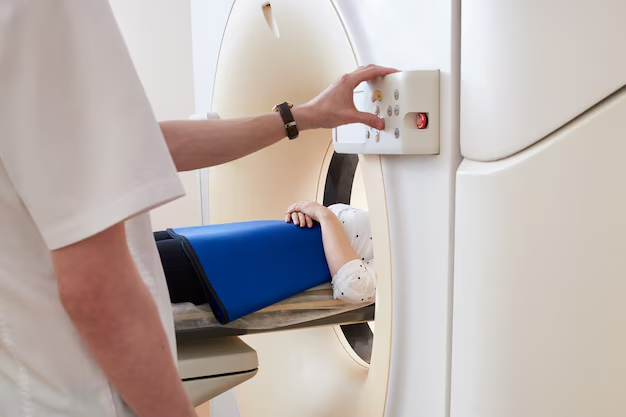Your Guide to Does Medicare Pay For a Mri
What You Get:
Free Guide
Free, helpful information about Medicare Insurance and related Does Medicare Pay For a Mri topics.
Helpful Information
Get clear and easy-to-understand details about Does Medicare Pay For a Mri topics and resources.
Personalized Offers
Answer a few optional questions to receive offers or information related to Medicare Insurance. The survey is optional and not required to access your free guide.
Discover If Medicare Covers MRI Scans
Navigating the world of healthcare can feel like navigating a labyrinth. When it comes to medical imaging, one question often arises: Does Medicare pay for an MRI? If you or someone you love needs an MRI, understanding what Medicare covers can make a world of difference in planning for medical expenses.
Medicare’s Coverage of MRIs
In general, Medicare Part B covers diagnostic tests like MRIs if they are deemed medically necessary by a healthcare provider. However, this comes with specific conditions and potential costs. Let's break it down:
- Medically Necessary: Medicare will cover an MRI if your doctor or healthcare provider accepts Medicare and believes the test is necessary to diagnose or treat a medical condition.
- Costs: You'll typically pay 20% of the Medicare-approved amount, and the Part B deductible applies (unless you have supplemental insurance). It's crucial to check if the facility is certified and accepts Medicare to ensure coverage.
- Settings Covered: Outpatient settings such as independent diagnostic testing facilities, hospital outpatient departments, and doctor's offices are generally where Medicare will cover the MRI, provided the service is necessary and ordered by a physician.
Understanding the Scope
While Medicare covers MRIs, there may be situations where coverage is more limited or might require additional documentation. For example, if your MRI is requested to monitor an ongoing condition rather than diagnose a new one, there might be scrutiny of its necessity.
Expanding the Safety Net: Financial Assistance Programs
The high cost of medical tests can be daunting, especially for those on a fixed income. Fortunately, there are several financial assistance programs and government aid options that eligible individuals can access:
- Medicaid: Offers broader healthcare coverage and can supplement Medicare for those with limited income.
- State Pharmaceutical Assistance Programs (SPAPs): Assist with prescription costs that may accompany treatments following an MRI diagnosis.
- Medicare Savings Programs: Help pay some of the out-of-pocket costs of Medicare, such as premiums, deductibles, and coinsurance.
Broader Financial Solutions
Medical expenses are a significant concern, but there are other tools and resources available to help manage financial health holistically:
- Debt Relief Options: For those struggling with medical debt, consider seeking debt settlement or management assistance. These programs can renegotiate or consolidate your debts.
- Credit Card Solutions: Balance transfers or low-interest credit cards might be options for financing medical expenses short-term, but be cautious about interest and fees.
- Educational Grants: If you're looking to pivot careers due to health issues or wish to increase your financial literacy, various educational grants and scholarships can help you gain new skills.
For anyone feeling overwhelmed, reaching out to a financial adviser or a social worker can be incredibly beneficial. They can guide you through your present challenges and help secure a more stable financial future.
Helpful Resources and Programs 📊
- 🏥 Medicaid: Complements Medicare for lower-income individuals.
- 💊 SPAPs: Assists with medication costs post-diagnosis.
- 💼 Medicare Savings Programs: Reduces out-of-pocket expenses.
- 📉 Debt Relief Options: Manage and consolidate medical debt.
- 💳 Credit Card Solutions: Finance expenses judiciously.
- 🎓 Educational Grants: Support career changes or skill development.
Arming yourself with knowledge about Medicare's coverage for MRIs and the array of financial resources available can ease the stress of managing healthcare costs and lead to more informed decisions.
What You Get:
Free Medicare Insurance Guide
Free, helpful information about Does Medicare Pay For a Mri and related resources.

Helpful Information
Get clear, easy-to-understand details about Does Medicare Pay For a Mri topics.

Optional Personalized Offers
Answer a few optional questions to see offers or information related to Medicare Insurance. Participation is not required to get your free guide.


Discover More
- Am I Elgible For Medicare
- Am I Enrolled In Medicare
- Am I Qualified For Medicare
- Are Adult Diapers Covered By Medicare
- Are Chemotherapy Drugs Covered By Medicare Part d
- Are Colonoscopies Covered By Medicare
- Are Covid Tests Covered By Medicare
- Are Cpap Machines Covered By Medicare
- Are Cpap Supplies Covered By Medicare
- Are Dental Implants Covered By Medicare
